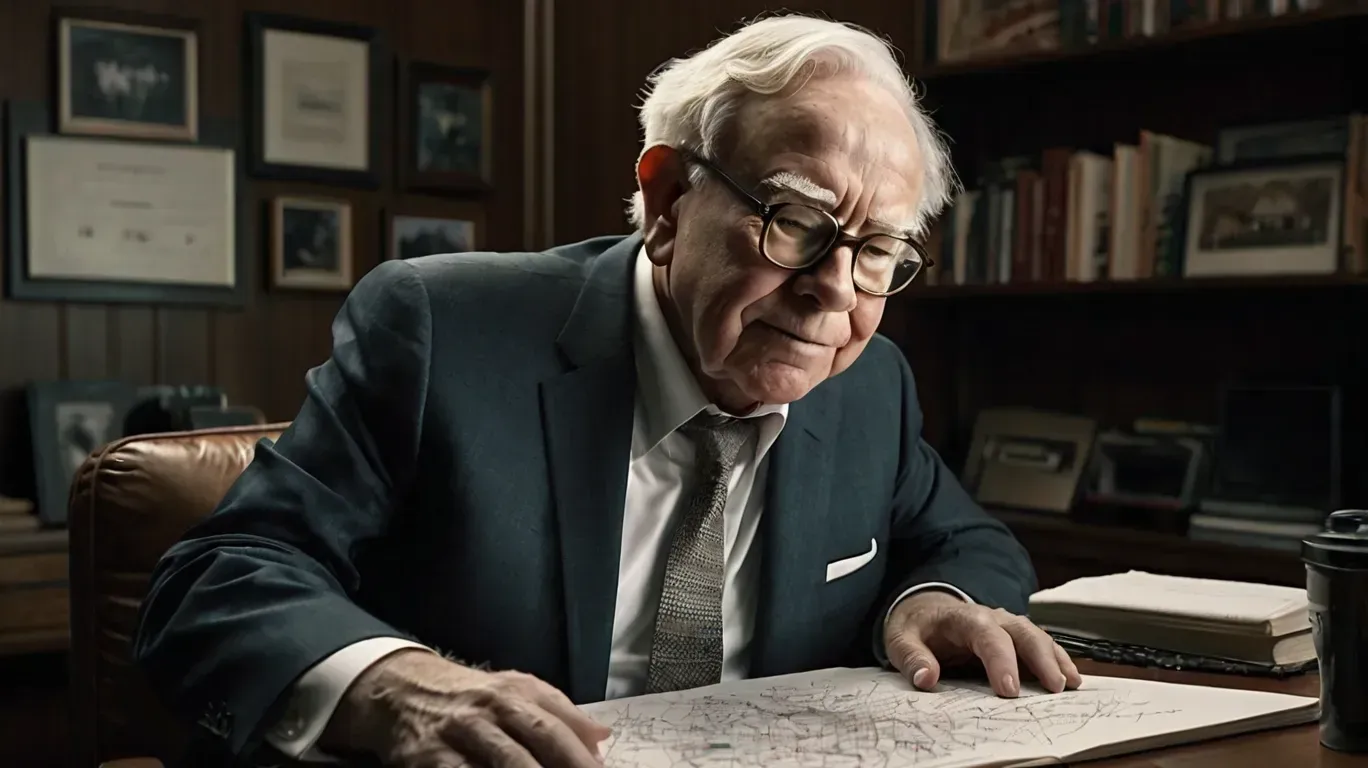Welcome to our yet another Summary Series, where we offer concise overviews of books with a focus on personal finance for our subscribers. This series is designed to give a snapshot of the book's content and should not be considered a replacement for the enriching experience of reading the book in its entirety. We highly recommend reading the full text to grasp the author's complete ideas and concepts, using this summary merely as a supplementary reference.
This episode is inspired by "The Snowball: Warren Buffett and the Business of Life," a popular request from our audience. I dedicate this to the late Mr. Munger and the Oracle of Omaha himself.
The Buffett family's story begins with John Buffett, a serge weaver who fled to America in the 1600s to escape religious persecution. Settling in Long Island, New York, he started a legacy of farming and frugality. One of John's sons took the family's urge to preach to heart, even attempting to convert the residents of Connecticut before being struck by lightning. Generations later, Zebulon Buffett exemplified another family trait: extreme tightfistedness.
This trait led his grandson, Sidney Homan Buffett, to leave Zebulon's farm due to low pay and move to Omaha, Nebraska. Sidney opened a grocery store, working long hours and building it into a success. His story of hard work, frugality, and persistence laid the groundwork for future generations, including his grandson, Warren Buffett, who inherited these traits and turned them into a formula for extraordinary success.
Ernest Buffett: The Iron-Willed Grocer
Ernest Buffett, Warren’s grandfather, was a strict and hardworking grocer in Omaha. Born in 1877, he left school early to help his father, Sidney, during the Panic of 1893. Known for his iron-willed demeanor, Ernest ran the family grocery store with a mix of charm and strictness. He demanded punctuality and efficiency from his employees, keeping a little black notebook to jot down names of those who irritated him.
Ernest was deeply committed to his community, attending conferences and voicing his strong opinions on business and politics. Despite his stern nature, he was thrifty and believed in saving money, a principle he passed down to his children. Ernest's disciplined approach to business and life, combined with his frugality, created a stable environment that significantly influenced Warren. The lessons Warren learned from his grandfather's work ethic and financial prudence became fundamental to his future success.
Howard Buffett: The Outsider with a Purpose
Howard Buffett, Warren's father, felt like an outsider during his youth in Omaha. Despite being the son of a grocer, he often wore hand-me-down clothes and worked as a paperboy, which made him feel different from the wealthier kids at school. This experience instilled in him a disdain for privilege by birth and a deep sense of purpose. After graduating from the University of Nebraska with a degree in journalism, Howard initially pursued a career in journalism but later shifted to stockbroking at his father Ernest’s insistence.
Howard was passionate about politics, harboring strong Republican views and a desire to speak out against what he saw as the country’s political ills. His fervor for politics and his commitment to hard work and frugality created a unique environment at home. These influences profoundly shaped Warren, instilling in him values of diligence, independence, and a critical view of inherited privilege.
The Great Depression's Impact and the Birth of Warren
During the Great Depression, the Buffett family faced significant financial challenges. Howard Buffett struggled to make ends meet as a stockbroker when the market crashed in 1929. His first commission was a mere five dollars, and months passed without any new business. Despite the hardships, Howard's perseverance paid off, and he eventually established a successful stockbroking firm. Amidst this turmoil, Warren Buffett was born on August 30, 1930.
The family's financial struggles during Warren's early years left a lasting impression on him. Howard and his wife Leila made many sacrifices to ensure their children's well-being, often going without basic necessities. This period of economic uncertainty taught Warren the importance of financial security and resilience. Growing up in a household that valued hard work and frugality, Warren absorbed these lessons, which would later become central to his philosophy on investing and money management.
Childhood Lessons: Collecting and Compounding
Warren Buffett's entrepreneurial spirit showed early. At six, he sold packs of gum to neighbors and later hawked Coca-Cola bottles and magazines. Warren loved numbers and began collecting coins, stamps, and bottle caps. His favorite activity was counting and sorting his collections, sparking his interest in mathematics and statistics. Warren learned the value of patience and compound interest when he bought his first shares of stock at age 11. He invested $120 in Cities Service Preferred, watching it drop before rebounding for a small profit.
However, he sold too early and missed out on a significant gain, a lesson that deeply impacted him. This experience taught him not to fixate on short-term losses and to be patient for long-term gains. These early ventures and lessons in collecting and compounding money laid the foundation for Warren's future success as an investor.
The Influence of Family and the Stock Market
Warren's fascination with the stock market began with visits to brokerage firms with his father, Howard, and great-uncles. Each had strong, contrasting views on the market: Uncle Frank was a pessimist, convinced everything would fail, while Uncle John was an eternal optimist. Observing their debates and the stock ticker’s relentless movement, Warren learned to form his own opinions, realizing the market’s complexity and the importance of independent thinking.
At ten, he accompanied his father on a memorable trip to New York City, visiting the New York Stock Exchange and meeting Sidney Weinberg, a big name on Wall Street. This experience solidified Warren's interest in finance. He saw firsthand the world of big money and high stakes, sparking a lifelong ambition. These early exposures to the market, combined with the lessons from his family’s debates, ingrained in Warren the importance of critical analysis and patience in investing.
Education and Early Investments
Warren Buffett excelled in school, particularly in math, which fueled his passion for numbers and investing. He enjoyed competing in spelling bees and math races, often outpacing his classmates. His natural curiosity led him to devour books like "One Thousand Ways to Make $1,000," which introduced him to the power of compounding.
At eleven, Warren made his first investment, buying three shares of Cities Service Preferred. When the stock's value dropped, he learned the importance of patience and not panicking over short-term losses. Selling too soon for a small profit, he watched the stock soar afterward, teaching him the value of long-term thinking.
These early experiences cemented Warren's investment philosophy. He understood the potential of steady, calculated investments and the significance of letting them grow over time. His school years and initial forays into the stock market set the stage for his future success as a disciplined and patient investor.
The Path to Financial Independence
Warren’s drive for financial independence started early. Inspired by the book "One Thousand Ways to Make $1,000," he was captivated by the idea of compounding wealth. He set an ambitious goal to become a millionaire by thirty-five. At eleven, Warren invested $120 in Cities Service Preferred shares, learning valuable lessons about patience and long-term investing when he sold too early and missed a larger profit.
Warren saved and reinvested his earnings from various ventures. He mowed lawns, delivered newspapers, and sold golf balls and stamps. His knack for finding profitable opportunities and his dedication to saving set him apart. Warren understood that every dollar saved and invested could grow exponentially over time, thanks to compounding interest. This realization drove him to maximize his savings and invest wisely. By systematically saving and investing, Warren steadily built his wealth, laying the groundwork for his future success as one of the world's most renowned investors.






